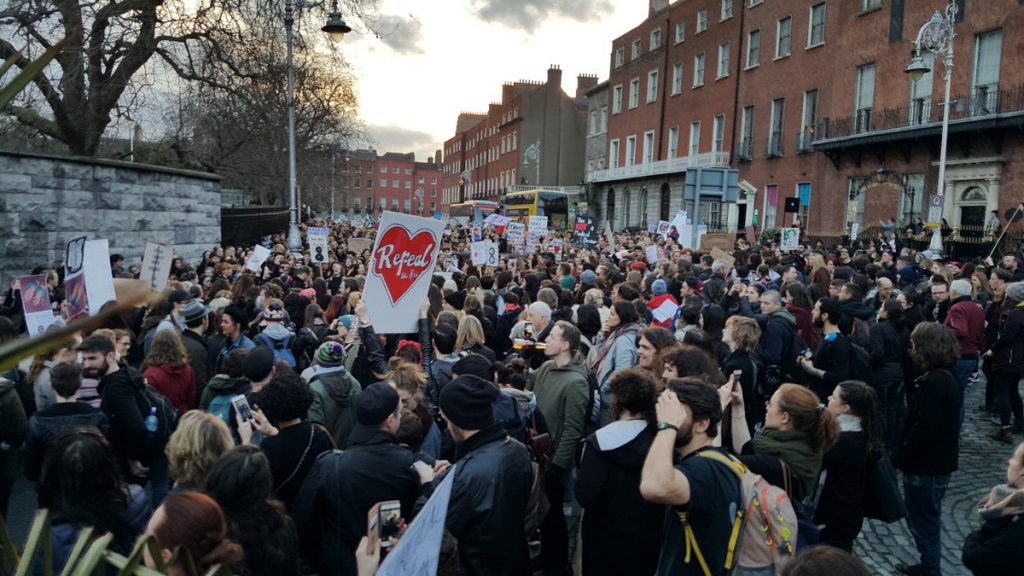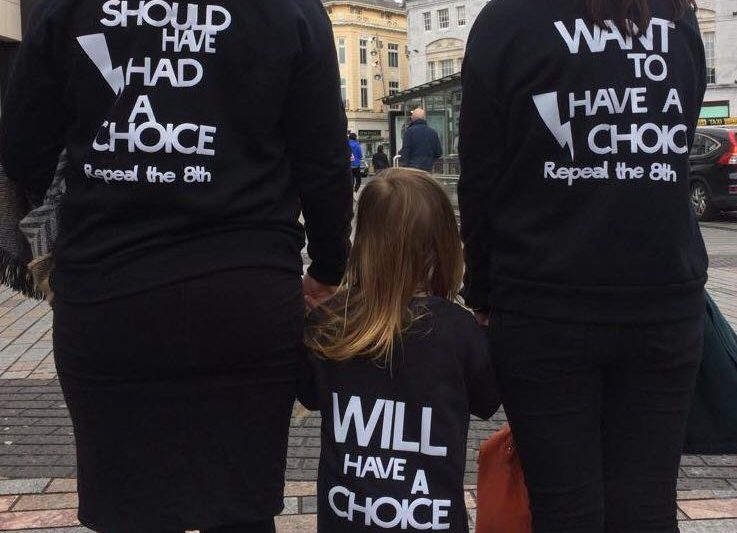Thousands of Irish women marched across Dublin on International Women’s Day in a bid to repeal the country’s restrictive abortion laws. Currently, women cannot access abortions unless their life is at risk – even if they have survived rape or incest.
Twelve women a day travel to England for terminations, paying up to £2,000 for the procedure, travel and accommodation. Another three women a day are thought to take illegal abortion pills ordered online or smuggled into the country. Taking, or even distributing the pills, can lead to up to 14 years in prison.
More than 10,000 people took part in the #March4Repeal protest in Dublin according to police estimates. Earlier in the day students across the country also walked out of lectures as part of #Strike4Repeal, with more than 30 events across Ireland and in cities across the globe.
‘Inhumanity at its most blatant’

Speaking to RightsInfo, Ailbhe Smyth, from the Coalition to Repeal the Eighth Amendment, said the “thousands and thousands” of women taking action were “a pretty strong signal to the Government to do something now”, adding:
It’s a flagrant violation of women’s human rights. It’s a denial of a women’s fundamental right to independent bodily autonomy. We have a reality of abortion. Women in Ireland need abortion, and will go to quite extreme lengths to get it. For Ireland to fulfil its human rights obligations, it must allow access to abortion.
Irish women are also unable to have a termination in the case of fatal foetal abnormalities – where the baby will be unable to survive outside the womb. Susan McGrady, who joined a protest in Galway, said the practice was “beyond inhumane”, describing how a friend had to travel to Liverpool for an abortion after discovering her child would not live after birth.
“I couldn’t believe or understand why we couldn’t take care of her here,” she added. “Every human has the right to decide what happens to their own body, but in Ireland the moment you become pregnant you lose that right.”
“That’s inhumanity at its most blatant,” Ms Smyth comments. “Women are effectively carrying around a foetus which is dying inside them, they will never see the baby group up. Words tend to fail me on this.”
Abortion and Human Rights

Abortion laws are a complex and emotive issue around the globe, with many human rights considerations. Articles 2 and 3 from the Human Rights Convention both come into play. Article 3 protects women – and all of us – from being subjected to torture or inhuman or degrading treatment. Article 2 protects the right to life, with some people debating when the right to life begins. However, unborn children do not have separate legal recognition from their mothers.
The rules in Ireland are some of the most restrictive in the world and have been criticised by international human rights bodies. In 2016 the United Nations Human Rights Committee ruled that the current system subjects women to “discrimination and cruel, inhuman or degrading treatment” and advised a change in the law. Sadly, this has yet to happen.







